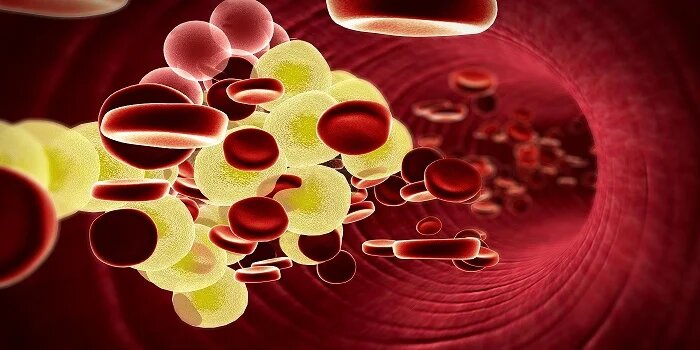Weight Loss: Building Health Through Smart Choices

Weight loss is one of the most common goals for people in today’s world. Some want to feel more confident, while others want to prevent health issues and live longer, more active lives. But despite its popularity, weight loss is often surrounded by myths, false promises, and unrealistic expectations. True weight loss is not about quick diets or harsh restrictions—it is about building steady habits that lead to lasting change.
What is Weight Loss?
Weight loss happens when the body uses more energy than it consumes. Our bodies need calories from food and drinks to function. When more calories are taken in than burned, the excess is stored as fat. Creating a calorie deficit—by eating slightly less and moving a little more—forces the body to burn stored fat for energy.
That being said, weight loss is not only about numbers. It’s about improving overall health by balancing nutrition, exercise, sleep, and emotional well-being.

Why Weight Loss Matters
Carrying excess weight puts stress on many parts of the body. Achieving and maintaining a healthy weight provides powerful benefits:
- Better Heart Health: Losing weight lowers blood pressure and cholesterol.
- Reduced Diabetes Risk: Balanced weight supports normal blood sugar levels.
- Less Pressure on Joints: Every pound lost reduces strain on knees, hips, and back.
- Stronger Mental Health: A healthy body often brings more energy and self-confidence.
- Improved Sleep Quality: Weight control can reduce snoring and sleep problems.
- Boosted Energy: With less fat weighing you down, movement becomes easier and more enjoyable.
Even a modest weight reduction can bring noticeable health improvements.
Myths About Weight Loss
The world is full of weight loss advice, but much of it is misleading. Here are a few myths to avoid:
- Myth: Carbs are bad.
Truth: Carbohydrates are necessary, but whole grains and fruits are better than processed carbs. - Myth: Skipping meals is effective.
Truth: This often leads to overeating later in the day. Balanced meals work better. - Myth: Exercise alone is enough.
Truth: Diet plays a bigger role. Exercise supports health but cannot cancel out poor food choices. - Myth: Fast results are possible with extreme diets.
Truth: Rapid weight loss is usually temporary and often unhealthy.
Avoiding these myths makes the weight loss journey more realistic and effective.
Healthy Ways to Lose Weight
Safe and steady progress is always better than rushing. Here are some proven ways to lose weight naturally:
- Balanced Meals: Focus on vegetables, fruits, lean proteins, whole grains, and healthy fats.
- Controlled Portions: Use smaller plates or measure food to avoid overeating.
- Hydration: Drinking plenty of water boosts metabolism and lowers unnecessary snacking.
- Daily Exercise: Include a mix of cardio like walking or running, and strength training to build muscle.
- Consistent Sleep: Poor sleep causes cravings and slows metabolism.
- Stress Management: Stress increases the urge for “comfort eating.” Practices like meditation or yoga help.
- Consistency Over Perfection: Aim for lifelong healthy habits, not just short-term efforts.
The Role of Exercise
Exercise is vital not only for burning calories but also for keeping muscles and metabolism strong. A healthy exercise routine includes:
- Cardio Activities: Walking, jogging, cycling, or swimming to burn calories.
- Strength Training: Building muscle increases fat burning, even at rest.
- Daily Movement: Taking stairs, stretching at work, or walking after meals all add up.
The goal is not extreme workouts but making movement a daily lifestyle.
Weight Loss Through Smart Eating
Diet is a powerful tool in weight control. Focus on:
- High-Fiber Foods: Vegetables, beans, oats, and whole grains keep you fuller, longer.
- Lean Protein: Chicken, fish, eggs, beans, or tofu support muscle repair and satisfaction.
- Healthy Snacks: Replace chips and soda with fruits, nuts, or yogurt.
- Limiting Sugary Drinks: Soft drinks and high-sugar juices add many empty calories.
- Mindful Eating: Eat slowly, without distractions, and listen to hunger signals.
Instead of extreme diets, choose an eating style you can maintain long-term.
Long-Term Habits for Success
Losing weight is only half the job—keeping it off requires healthy routines:
- Weigh yourself occasionally or track progress.
- Plan weekly meals to reduce last-minute unhealthy choices.
- Keep healthy snacks at hand to fight sudden hunger.
- Set realistic goals and celebrate progress, not perfection.
- Build discipline slowly instead of seeking instant change.
When weight management becomes a lifestyle, it’s easier to maintain success.
Final Thoughts
Weight loss is not about quick diets or extreme solutions—it is about patience, balance, and commitment. By choosing healthy foods, staying active, prioritizing sleep, and managing stress, anyone can create a healthier body and mind. Small, consistent changes each day bring lasting results, both physically and mentally.
True weight loss is not just about looking slimmer—it’s about living healthier, feeling stronger, and enjoying life with more energy and confidence.



